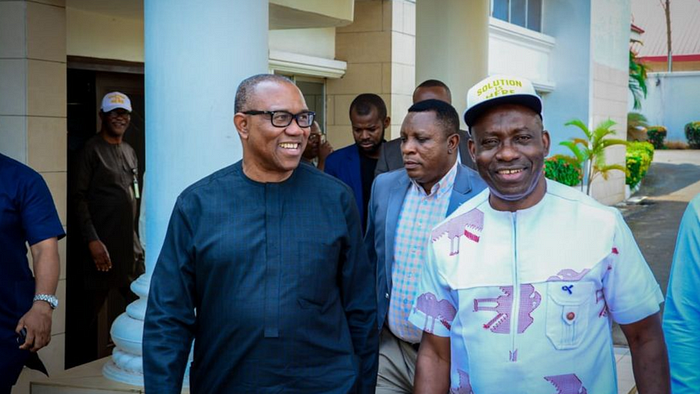Quick one about Igbo leaders
The Guardian has an analysis that pummels Igbo leaders. Of course, the piece was triggered by Soludo taking his mallet and chisel and carving 4000 words of love at Peter Obi, an action that coupled with the mounds of refuse I saw at Upper Iweka this weekend, makes me wonder whether Anambra’s governor is idle…

Three broad themes come from the piece: a consensus is needed from ani Igbo’s leadership; a lack of strategic engagement; and that ndị Igbo do not have a formidable alliance. Sadly, the piece did not do a root cause analysis. To be clear, what follows only scratches at the surface, and does not qualify as a deep root cause analysis.
It is easy to focus on Soludo and his theatrics, but he is simply a manifestation of a more significant issue.
I think it’s fair to start this by pointing out that Nigerians generally despise their “leaders”. It is poverty that gives these people power and take that away, or create alternative centres of wealth, and almost all participants in Nigeria’s current leadership structure will be rendered irrelevant.
Having laid this groundwork, let us zero in on the South-East. Before the Civil War, there was a class of leaders, MI Opara being the most prominent, who were of the people. People willingly gave him leadership, and he reciprocated. According to Paul Anber’s 1967 book, Modernisation And Politics Disintegration: Nigeria And The Igbo, between 1954 and 1964, Eastern Nigeria was the fastest-growing economy in the world. All of that was halted by the events of 1966 to 1970, and the region has not truly recovered.
The seminal event of the post-1970 settlement was the £20 fiasco, where the wealth of the Igbo nation was effectively destroyed by military fiat, and despite any pretences, we have not recovered as a people. When a society’s elite is destroyed, the people most likely to climb out first are the dregs of the society. Ndị ogbu oge.
You see, what happened after that event was that Igbo society essentially became crabs in a barrel, and working as individuals, rather than towards the greater good of the group, they act for their individual interests. The upshot of that is a loss of societal legitimacy, which creates the conditions for demagogues such as Nnamdi Kanu to emerge.
What has happened with Peter Obi so far is not really about him, he is just a symbol. It is about what the youth of Nigerian society as a whole, including, of course, Igbo youth, appear to have projected on him: they appear to have largely decided that compared to the other two major candidates in the race, he is the least bad option, so they have anointed him a sort of saviour. It appears not to matter to them that he is of the same political class. What matters is his reputation for frugality and, most of all, his accessibility.
This is where my earlier description of crabs in a barrel comes to play: when crabs are in a barrel, they climb on one another to get to the top. PO is the crab at the top, and the crabs below him, Soludo, Umahi, Uzodinjo, Ikpeazu, are somewhat envious, so they are trying to pull him down in order to climb. Again, Peter Obi is merely a symptom of a larger issue.
For the record, and I said as much on Nigeria Politics Weekly before he was sworn in, I think Soludo is an attention-seeking egomaniac who can’t stand the thought of another Igbo person being more prominent than him; hence he did the same shit to Dora and NOI before this nonsense. Maka ọ sọ Charlie ma ife…